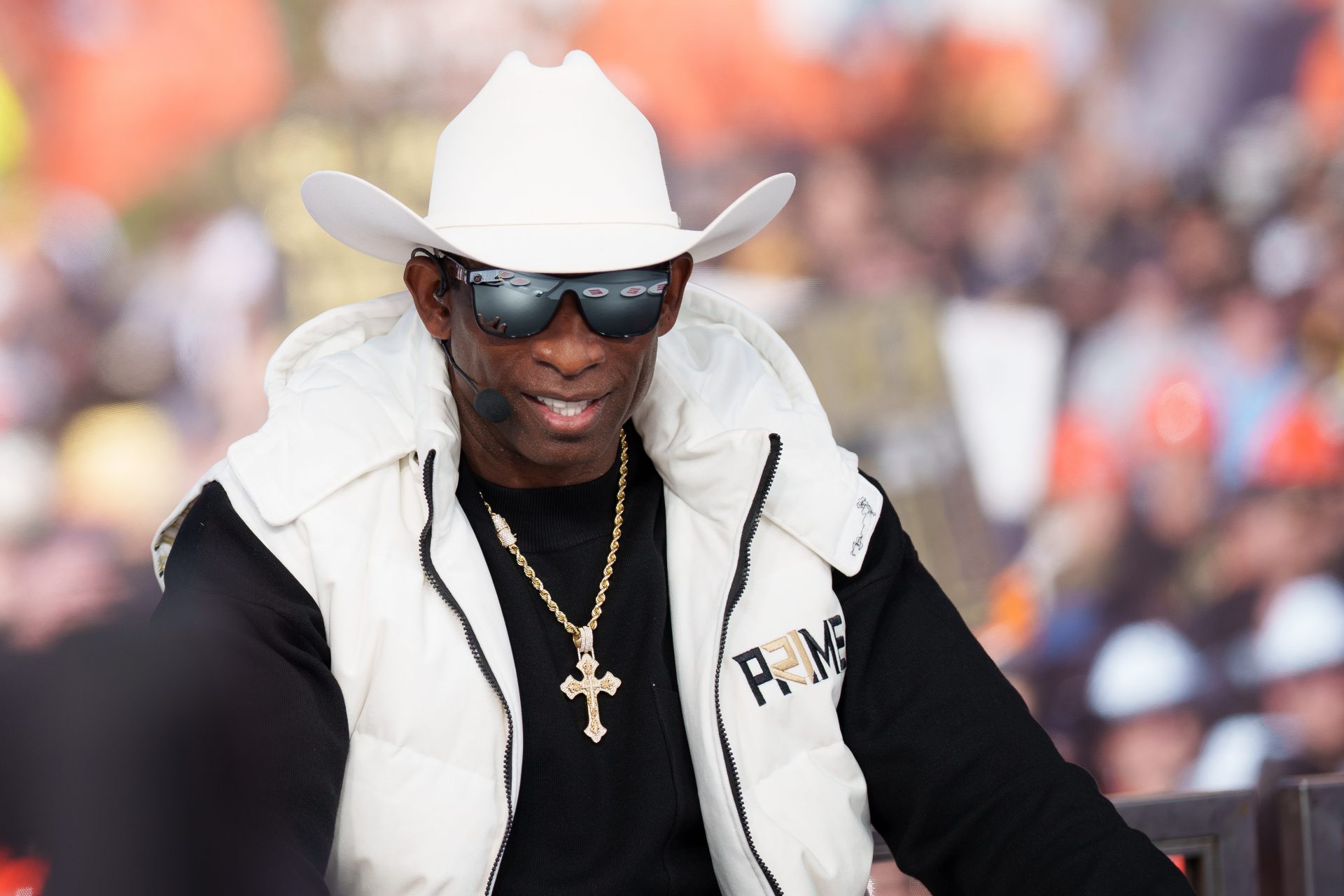Deion Sanders’ proposal of a salary cap for college football drew some attention a couple of weeks ago during the Big 12’s media days. The proposal seems directed to preventing powerhouse schools – the Ohio States and Alabamas of the world – from ruling the sport and yanking away top players from smaller programs, like Coach Prime’s Colorado.
Adding his voice to the chorus, Cam Newton came out in support of Deion Sanders this Tuesday on the “4th&1 With Cam Newton” podcast:
“Coach Prime is absolutely right. We need to get a grip on this. Because it’s getting out of hand. There are sharks, there are vultures out there, just looming—and their prey is these athletes, man. And these folks? They can come in all forms. They might wear a suit. They might look like a preacher.” (50:45)
Nonetheless, there have been plenty of voices that disagree with Sanders. Some have called him out on wanting to impose a system in football, which he opposed in the MLB through a strike in the 1990s when he was a player for the Atlanta Braves. It was a strike so successful that to this day, baseball remains the only major American sports league without a salary cap.
In general, insiders and analysts have thought that proposing a salary cap seems very out of character for someone always so concerned with the financial welfare of players.

Urban Meyer’s take on Deion Sanders’ salary cap proposal
One of the prominent voices to disagree with Sanders was Urban Meyer. The former Ohio State coach dismissed the idea this week on his “The Triple Option” podcast. According to him, a salary cap will never be implemented in college football:
“I have two thoughts. Number one, I thought that was one of the purposes of this entire settlement and everyone with a salary cap. And number two is: I could care less. I mean, this is—I think—the 780th time we’ve talked about this.” (8:00)
“But still, it will never happen. It will never happen because Colorado is not the same as Ohio State and Alabama and big market cities that have alumni who are willing to do that. In a perfect world, you’d like it to be like the NFL—but it’s not. It’s like Major League Baseball, and we’ve said this over and over again,” he added.
Meyer raised an interesting point, in that the rules laid out in the House v. NCAA settlement have already constricted the schools’ abilities to pay players. Per the settlement, schools will only be able to use 22% of their yearly revenue on player compensation (For year one, the cap is set at $20.5 million).
Many analysts have already argued these numbers won’t be enough to build a nationally competitive roster. This is where NIL deals remain essential, but they will now have to be approved by the independent clearinghouse designated by the settlement (Consulting firm Deloitte). This new regulation might make it difficult for programs to use booster collectives to hand money in their name.
College Sports Network has you covered with the latest news, analysis, insights, and trending stories in college football, men’s college basketball, women’s college basketball, and college baseball!

